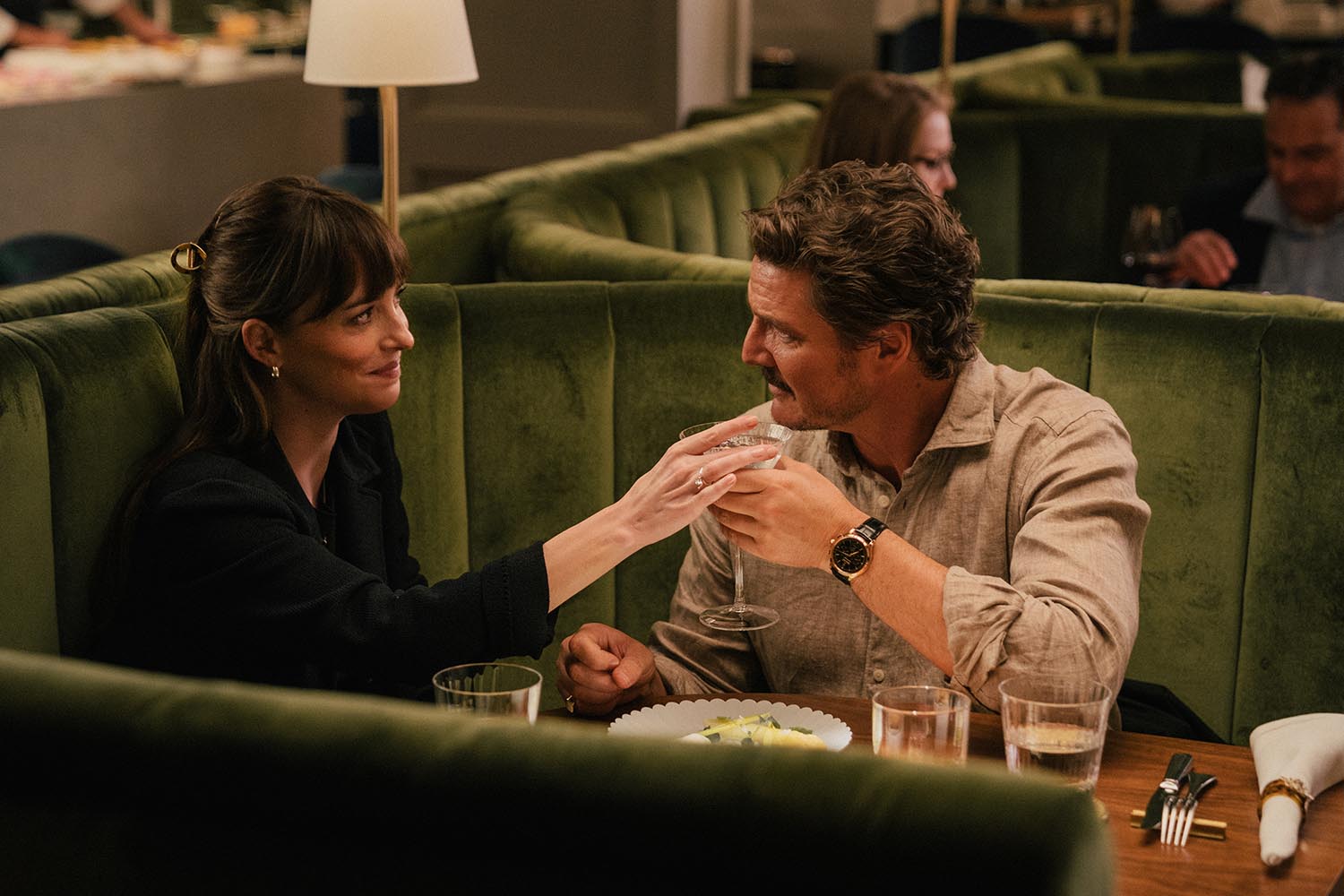One woman, two men. And a mess of conflicting emotional currents and tensions. It’s a dynamic that has provided the jumping-off point for both of the playwright turned film-maker Celine Song’s pictures; her double Oscar-nominated debut Past Lives, and now her second film, the thinner, less emotionally nourishing work Materialists.
It has also inspired innumerable other romantic films over the years; so many that you may wonder what repeatedly draws a writer-director of Song’s insight and intelligence to such a hackneyed device. But her love triangles have unusually sharp edges.
The astringency of Materialists lies in Song’s lightly satirical view of New York’s dating scene, and her observations of how consumerism has so thoroughly saturated the worlds of those in the higher-income brackets that the process of finding a life mate is akin to shopping for luxury goods.
Extremely comfortable in this rarefied world, but not originally from it (she was raised poor), is Lucy (Dakota Johnson). A highly successful matchmaker, she’s a long, luxurious creature with a glued-on smile that covers any disdain she might feel for her venal, demanding clients.
At the wedding of one of her “matches”, Lucy is subtly touting for new business when she meets Harry (Pedro Pascal). He is, she quickly realises, a “unicorn” – Manhattan dating parlance for a rare man who delivers the full package. He’s tall, good-looking, in great shape, well dressed and – crucially – obscenely wealthy. Oh, and his personality, or what we can see of it under all that money, is fine too. Lucy sets out to recruit him as a client for her agency. But Harry is more interested in Lucy herself than in any of her eager bachelorettes.
The process of finding a life mate is akin to shopping for luxury goods
The process of finding a life mate is akin to shopping for luxury goods
That same evening, Lucy reconnects with her ex John (Chris Evans), a struggling actor, who is working as a waiter at the wedding reception. The flame between them is rekindled, but so are the memories of what drove them apart: the niggling attrition of arguments about money. Lucy allows herself to be courted by Harry but, tellingly, it’s John who she calls in distress over a work crisis. What’s a girl to do?
Lucy talks a lot about “math”. Her clients are reduced to a collection of digits: for men, it’s their height and their income; for women, it’s their age. Each individual can be assigned a value like prize livestock in the dating market. For a relationship to work, she drawls, the numbers have to add up.
Song’s non-judgmental writing lacks the savagery that the subject matter might warrant, but she makes it clear that she has little time for this transactional view of romance or the reductive idea that a person, with all their peculiarities and foibles, can be summed up in a few vital statistics.
Which is fine, except for the fact that Song’s characters are so schematic and two-dimensional that there’s little to define them beyond which income bracket they slot into. Harry’s main character traits are his impeccable tailoring and his willingness to pick up the bill at the end of the night.
What we learn about John, outside of his connection to Lucy, is that he’s a failed actor for good reason and is irked by his micro-budget living arrangements (he lives in a malodorous shared apartment with two other men and very little in the way of cleaning equipment).
Newsletters
Choose the newsletters you want to receive
View more
For information about how The Observer protects your data, read our Privacy Policy
And Lucy? We get occasional glimpses under the glassy poise but if there’s any depth to Johnson’s languorous performance, it’s pretty efficiently buried. The fault lies predominantly with Song’s screenplay, which is so preoccupied with the idea of marriage as a business proposal and the asset valuation of prospective partners that it neglects to include any normal conversations. It all feels a little undercooked. And it’s a striking contrast to the fleet, playful wit, and vital energy and authenticity of her Oscar-nominated script for Past Lives.
Stories that foreground the economics of romance are hardly new, from Jane Austen’s novels – populated with women who can recite the yearly incomes of every eligible bachelor within a 50-mile radius – to the glittering hustlers of 1930s and 40s comedies (Barbara Stanwyck’s glamorous con artist in The Lady Eve or Claudette Colbert’s broke showgirl in Midnight).
But Materialists lacks the satisfyingly drawn characters of Austen, the elegant wit and spite of the screwballs – and the chewy complexity and formal brio of the exquisite Past Lives.
Photograph by A24

